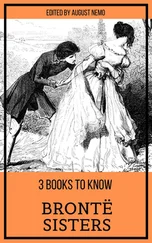James Farrer - Books Condemned to be Burnt
Здесь есть возможность читать онлайн «James Farrer - Books Condemned to be Burnt» — ознакомительный отрывок электронной книги совершенно бесплатно, а после прочтения отрывка купить полную версию. В некоторых случаях можно слушать аудио, скачать через торрент в формате fb2 и присутствует краткое содержание. Жанр: foreign_antique, foreign_prose, на английском языке. Описание произведения, (предисловие) а так же отзывы посетителей доступны на портале библиотеки ЛибКат.
- Название:Books Condemned to be Burnt
- Автор:
- Жанр:
- Год:неизвестен
- ISBN:нет данных
- Рейтинг книги:4 / 5. Голосов: 1
-
Избранное:Добавить в избранное
- Отзывы:
-
Ваша оценка:
- 80
- 1
- 2
- 3
- 4
- 5
Books Condemned to be Burnt: краткое содержание, описание и аннотация
Предлагаем к чтению аннотацию, описание, краткое содержание или предисловие (зависит от того, что написал сам автор книги «Books Condemned to be Burnt»). Если вы не нашли необходимую информацию о книге — напишите в комментариях, мы постараемся отыскать её.
Books Condemned to be Burnt — читать онлайн ознакомительный отрывок
Ниже представлен текст книги, разбитый по страницам. Система сохранения места последней прочитанной страницы, позволяет с удобством читать онлайн бесплатно книгу «Books Condemned to be Burnt», без необходимости каждый раз заново искать на чём Вы остановились. Поставьте закладку, и сможете в любой момент перейти на страницу, на которой закончили чтение.
Интервал:
Закладка:
The virtuous Romans appear to have been greater book-burners than the Greeks, both under the Republic and under the Empire. It was the Senate's function to condemn books to the flames, and the prætor's to see that it was done, generally in the Forum. But for this evil habit we might still possess many valuable works, such as the books attributed to Numa on Pontifical law (Livy xl.), and those eulogies of Pætus Thrasea and Helvidius, which were burnt, and their authors put to death, under the tyranny of Domitian (Tacitus, Agricola 2). Let these cases suffice to connect the custom with Pagan Rome, and to prove that this particular mode of warring with the expression of free thought boasts its precedents in pre-Christian antiquity.
Nevertheless it is the custom as it was manifested in Christian times that has chief interest for us, because it is only with condemned books of this period that we have any chance of practical acquaintance. Some of these survived the flames, whilst none of antiquity's burning have come down to us. But on what principle it was that the burning authorities (in France generally the Parlement of Paris, or of the provinces), burnt some books, whilst others were only censured, condemned, or suppressed, I am unable to say, and I doubt whether any principle was involved. Peignot has noticed the chief books stigmatised by authority in all these various ways; but though undoubtedly this wider view is more philosophical, the view is quite comprehensive enough which confines itself to the consideration of books that were condemned to be burnt.
Books so treated may be classified according as they offended against (i) the religion, (ii) the morals, or (iii) the politics of the day, those against the first being by far the most numerous, and so admitting here of notice only of their most conspicuous specimens.
I. Of all the books burnt for offence under the first head, the most to be regretted, from an historical point of view, I take to be Porphyry's Treatise against the Christians , which was burnt a. d. 388 by order of Theodosius the Great. Porphyry believed that Daniel's prophecies had been written after the events foretold in them by some one who took the name of Daniel. It would have been interesting to have known Porphyry's grounds for this not improbable opinion, as well as his general charges against the Christians; and if there is anything in the tradition of the survival of a copy of Porphyry in one of the libraries of Florence, the testimony of the distinguished Platonist may yet enlighten us on the causes of the growing darkness of the age in which he lived.
All the books of the famous Abelard were burnt by order of Pope Innocent II.; but it was his Treatise on the Trinity , condemned by the Council of Soissons about 1121, and by the Council of Sens in 1140, which chiefly led St. Bernard to his cruel persecution of this famous man. That great saint, using the habitual language of ecclesiastical charity, called Abelard an infernal dragon and the precursor of Antichrist. Among his heresies Abelard seems to have held the opinion that the devil has no power over man; but at all events the Church had in those days, as Abelard learnt to his cost, though, considering that his disciple Arnauld of Brescia was destined to be burnt alive at Rome in 1155, Abelard might have deemed himself fortunate in only incurring imprisonment, and not sharing the fate of his works as well as that of his illustrious follower.
The latter calamity befell John Huss, who, having been led before the bishop's palace to see his own condemned works burnt, was then led on to be burnt himself, in 1415. Many of his works, however, were republished in the following century; but the twenty-nine errors which the Council of Constance detected in his work on the Church would probably nowadays seem venial enough. It was his misfortune to live in those days when the inhumanity of the world was at its climax.
It continued at that climax for some time, though heretical authors were not always burnt with their books. Enjedim, for instance, the Hungarian Socinian, who died in 1596, survived the burning in many places of his "Explanations of Difficult Passages of the Old and New Testament, from which the Dogma of the Trinity is usually established" ( Explicationes locorum difficilium , etc.). Peter d'Osma also, the Spanish theologian, whose Treatise on Confession was condemned by the Archbishop of Toledo in the fifteenth century, might have esteemed himself happy that only his chair shared the burning of his book. Pomponacius, an Italian professor of philosophy, whose Treatise on the Immortality of the Soul (1516), was burnt by the Venetians for the heretical opinion that the soul's immortality was not believed by Aristotle, and could only be proved by Scripture and the authority of the Church, seems to have died peacefully in 1526, albeit with the reputation of an atheist, which his writings do not support. Despériers was only imprisoned when his Cymbalum Mundi , censured by the Sorbonne, was consigned to the flames by the Parlement of Paris (March 7th, 1537). And Luther, all of whose works were condemned to be burnt by the Diet of Worms (1521), actually survived their burning twenty-five years, though he himself had publicly burnt at Wittenberg Leo X.'s bull, anathematising his books, as well as the Decretals of previous Popes.
Less fortunate than these were the famous martyrs of free thought, Dolet, Servetus, and Tyndale. All the works, which Dolet wrote or printed, were burnt as heretical by the Parlement of Paris (February 14th, 1543), and himself hanged and burnt three years later (August 3rd, 1546), at the age of thirty-seven. The reason seems chiefly to have been Dolet's unsparing exposure of the immoralities of monks and priests, and of the plan of the Sorbonne to put down the art of printing in France. In Peignot is preserved a long list of the names of the works to the publication of which he lent his aid.
The burning of Servetus, the Parisian doctor, at Geneva (October 27th, 1553), because his opinions on the Trinity did not agree with Calvin's, is of course the greatest blot on the memory of Calvin. All his books or manuscripts were burnt with him or elsewhere, so that his works are among the rarest of bibliographical treasures, and his Christianismi Restitutio (1553) is said to be the rarest book in the world. But apart from their rarity, I should hardly imagine that the works of Servetus possessed the slightest interest, or that their loss was the smallest loss to the literature of the world.
But if Calvin must bear the burden of the death of Servetus, Christianity itself is responsible for the death of William Tyndale, who, deeming it desirable that his countrymen should possess in their own language the book on which their religion was founded, took the infinite trouble of translating the Scriptures into English. His New Testament was forthwith burnt in London, and himself after some years strangled and burnt at Antwerp (1536).
The same literary persecution continued in the next century, the seventeenth. Bissendorf perished at the hands of the executioner at the same time that his books, Nodi gordii resolutio (on the priestly calling), 1624, and The Jesuits , were burnt by the same agent. In the case of the De Republicâ Ecclesiasticâ (1617) by De Dominis, Christian savagery surpassed itself, for not only was it burnt by sentence of the Inquisition, but also the dead body of its author was exhumed for the purpose. Dominis had been a Jesuit for twenty years, then a bishop, and finally Archbishop of Spalatro. This office he gave up, and retired to England, where he might write with greater freedom than in Italy. There he wrote this work and a history of the Council of Trent. His chief offence was his advocacy of the unchristian principles of toleration; he wished to reunite and reconcile the Christian communions. But alas for human frailty! he retracted his errors, many of them most sensible opinions, in London, and again at Rome, whither he returned. Pope Urban VIII., however, imprisoned him in the Castle of St. Angelo, where he is said to have died of poison, so that only his dead body was available to burn with his book the same year (1625). Literary lives were tragic in those times.
Читать дальшеИнтервал:
Закладка:
Похожие книги на «Books Condemned to be Burnt»
Представляем Вашему вниманию похожие книги на «Books Condemned to be Burnt» списком для выбора. Мы отобрали схожую по названию и смыслу литературу в надежде предоставить читателям больше вариантов отыскать новые, интересные, ещё непрочитанные произведения.
Обсуждение, отзывы о книге «Books Condemned to be Burnt» и просто собственные мнения читателей. Оставьте ваши комментарии, напишите, что Вы думаете о произведении, его смысле или главных героях. Укажите что конкретно понравилось, а что нет, и почему Вы так считаете.












